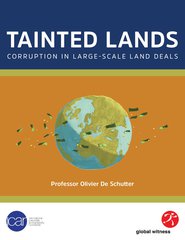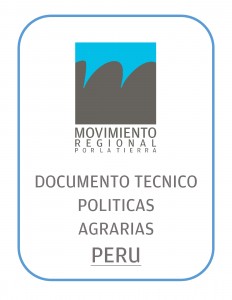Land Policy Dialogues : Addressing Urban-Rural Synergies in World Bank Facilitated Dialogues in the Last Decade
Land policy, administration and
management are areas of strong client demand for technical
advice and operational support. This review sought to help
the Bank better position itself to present coherent advice
on policy, institutional arrangements and practice. The
potential implications are a lowering of reputational risk
to the Bank; greater efficiency in the process including
joint data gathering; and building of greater momentum and





